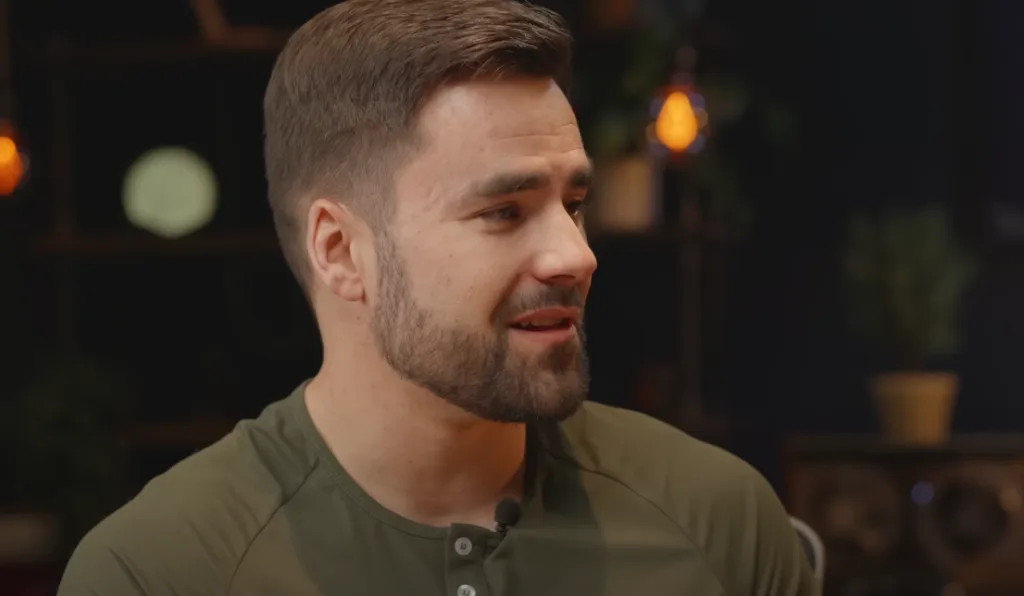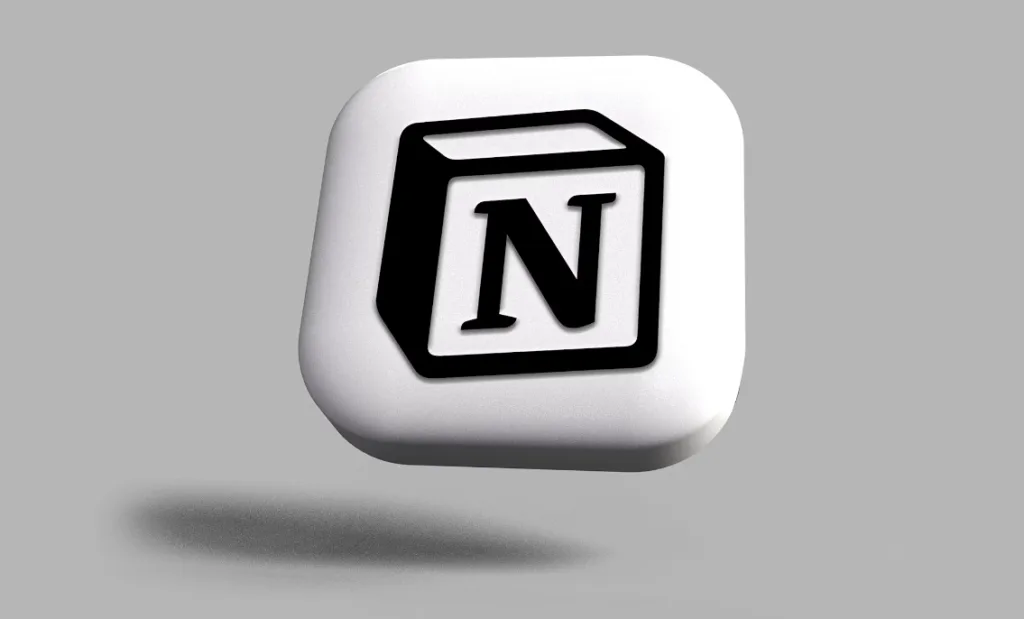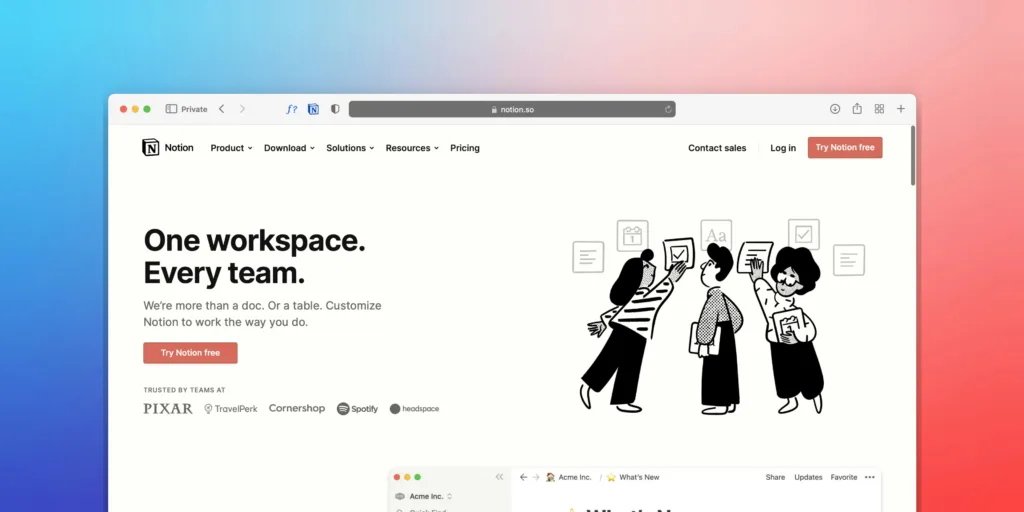From YouTube to Notion: How To Sell Notion Templates With Thomas Frank
In a recent Starter Story interview, YouTube creator and entrepreneur Thomas Frank shared his journey from running a successful YouTube channel to building a thriving digital product business centered around Notion templates.
Let’s delve into Thomas’s story, exploring how he transitioned from content creation to product development, and the strategies he used to grow his business to over $2.5 million in sales.

Thomas Frank’s Background
Thomas Frank’s entrepreneurial journey began during his college years.
Inspired by productivity blogs like Lifehacker, he started his own website, College Info Geek, to share study tips and life hacks with fellow students.
This early venture laid the foundation for his future success in content creation and digital products.
Key milestones in Thomas’s career:
- 2010: Started the College Info Geek blog
- 2014: Launched his YouTube channel
- 2020: Created a new Notion-focused YouTube channel
- 2021: Launched his first Notion template product
The Transition to Notion
In 2020, Thomas found himself at a crossroads.
Despite having a YouTube channel with nearly 3 million subscribers, he was starting to feel burned out.
He explains:
“Every video was sponsored. I felt pressure to get 100,000-200,000 views on every single video. It became the job and it sort of had sucked a little bit of the creative freedom out of it.”
This led Thomas to explore new avenues, particularly Notion – a productivity software that had caught his attention.
He decided to start a brand new YouTube channel focused entirely on Notion tutorials and tips.
This decision reignited his passion for content creation and opened up new business opportunities.
The Power of Niche Channels
Thomas’s experience highlights the potential of niche-focused content.
While his new Notion channel has fewer subscribers than his main channel, it generates more revenue.
He attributes this success to fulfilling existing demand:
“The power of a niche channel is you’re not necessarily trying to interest people in you. You’re building content about something that they’re probably already interested in. Notion already has a ton of people who are trying to do things, they’re looking for answers, so I’m fulfilling demand that’s already there.”

How to Sell Notion Templates Easily Using Thomas’ Method
Thomas’ venture into Notion templates has been remarkably successful, generating over $2.5 million in sales. Here’s how he built his business:
1. Product Development
- Created “Creator Companion”: A template for managing social media, YouTube, and blog content
- Developed “Ultimate Brain”: A personal productivity template combining task management, note-taking, and project management
2. Pricing Strategy
- Initially priced Creator Companion at $99 and $149 for different editions
- Current pricing: $199 for Ultimate Brain alone, $229 for the full bundle (most popular option)
3. Marketing and Customer Acquisition
- Leveraged his Notion-focused YouTube channel (Thomas Frank Explains) as the primary marketing channel
- Created various types of content:
- Build guides with free templates
- Notion feature tutorials
- Fundamentals content for beginners
- Listicle-style videos (e.g., “10 ways you’re using Notion wrong”)
4. Email Marketing
- Offers free templates to build an email list
- Uses autoresponders to promote paid templates
5. Customer Support
- Provided hands-on support during the initial launch
- Uses Circle.so for ongoing customer support and community building
Tools and Software
Thomas uses a variety of tools to run his business:
- Notion: For internal operations and product development
- Circle.so: For customer support and community management
- Lemon Squeezy: For payment processing and tax handling
- ConvertKit: For email marketing
- Pipedream: For automation

Advice for Aspiring YouTubers and Entrepreneurs
Thomas shares valuable advice for those looking to start on YouTube or build a similar business:
- Focus on consistent publishing: “Do whatever you have to do to make sure you publish on the schedule and try to get just a little bit better at something interesting every single time you publish.”
- Build a network: “Start building friendships with other people who are ambitious and who also want to build businesses. … Become a fan of people that you’re interested in, share their stuff, be commenting, because eventually you paying attention to them often leads to conversations, leads to meetings at conferences, leads to friendships.”
- Overcome perfectionism: “My biggest piece of advice for people who feel the same is it doesn’t matter if you get harsh feedback because you’re going to learn from it and it’s going to make the thing you publish next better.”
- Explore niche opportunities: Look for areas where there’s existing demand and create content or products that fulfill that demand.
Replicating Thomas’s Success
For those interested in replicating Thomas’s success, he offers these insights:
- Don’t limit yourself to software templates: “Don’t assume that niche software plus templates is the only way you can kind of monetize this. It could be any kind of niche where there is groundswell.”
- Consider various business models:
- Consulting
- Courses
- Templates
- SaaS products
- Analyze potential niches:
- Is it a business-focused niche?
- Is it enterprise-oriented?
- Would a smaller number of views bring in comparable revenue?
- Start with minimal investment:
“If you were building this, it would really just come down to some camera gear, some video gear, and then you could build a Framer website for 15 to 30 bucks a month depending on how content-heavy it needs to be.”

Challenges and Personal Growth
Like any entrepreneur, Thomas has faced challenges along the way.
He identifies self-doubt and perfectionism as significant hurdles:
“The biggest challenge that comes to mind right now is self-doubt and how that combines with wanting things to be perfect before I put them out in the world.”
To overcome these challenges, Thomas emphasizes the importance of pushing through and publishing content, even if it’s not perfect.
The feedback and learning process are crucial for growth and improvement.

Final Thoughts
Thomas Frank’s journey from YouTuber to successful digital product entrepreneur offers valuable insights for aspiring creators and business owners.
By identifying a niche opportunity, leveraging his existing skills, and consistently delivering value to his audience, Thomas has built a thriving business around Notion templates.
Key takeaways:
- Niche focus can lead to significant business opportunities
- Consistent content creation builds skills and audience over time
- Digital products can generate substantial revenue with low overhead
- Building a network of like-minded individuals is crucial for success
- Overcoming perfectionism and embracing feedback is essential for growth
Whether you’re considering starting a YouTube channel, creating digital products, or exploring other online business opportunities, Thomas’s story demonstrates that with dedication, strategic thinking, and a willingness to adapt, it’s possible to build a million-dollar business around your passions and skills.
(Source: The “Starter Story” YouTube Channel, video featuring Thomas Frank)




